Student ID Card
Introduction: The Evolution of Student ID Cards
In the realm of academia, the student ID card has become an indispensable tool. From its origins as a simple photo card used solely for identification purposes, the student ID has grown into a highly advanced, multi-functional asset that powers a range of services. This article will explore the evolution of student ID cards, the growing demand for digital solutions, and the impact they have on student life, campus security, and institutional efficiency. We will also examine how modern ID cards fit into a larger ecosystem of educational technology.
1. What is a Student ID Card? (1000 words)
Student ID cards are essential tools provided to students upon enrolling in an educational institution. Traditionally, these cards include the student’s name, photo, student identification number, and the institution's logo. The core purpose is to verify student identity, both within the campus and outside (e.g., during events, discounts, etc.). However, as technology has progressed, student ID cards have taken on a much more significant role.
1.1 Traditional vs. Modern Student ID Cards
- Traditional Student ID Cards: Plastic or laminated, primarily used for identification.
- Modern Student ID Cards: Smart cards integrated with Near Field Communication (NFC), Radio Frequency Identification (RFID), and barcode technology. Some even function as digital keys for dormitories, libraries, and classrooms.
1.2 Key Features of Student ID Cards
- Identification Information: Name, photo, student ID number, academic status.
- Security Features: Barcodes, QR codes, and holograms to prevent counterfeiting.
- Access Control: Digital smart cards can control entry to restricted areas such as laboratories, dormitories, and administrative offices.
- Payment Capabilities: Some ID cards double as prepaid debit cards for campus purchases.
- Digital Versions: Integration with mobile wallets for tap-and-go functionality, offering convenience without the need for physical cards.
1.3 Importance of Student ID Cards
Student ID cards foster campus security, provide access to institutional resources, and serve as a form of identity verification both within and beyond the school. They streamline campus services and ensure that only authorized individuals can access specific areas and resources, from academic buildings to student discounts at local businesses.
2. The Role of Student ID Cards in Campus Security (1000 words)
Campus security is one of the foremost concerns for any educational institution. Student ID cards play a crucial role in ensuring the safety of students, faculty, and staff. Their integration with modern access control systems and tracking mechanisms enables institutions to monitor campus activity effectively.
2.1 How Student ID Cards Improve Security
- Access Control: Limiting entry to specific areas based on student role (e.g., undergraduate vs. postgraduate) or clearance (e.g., research lab access).
- Attendance Tracking: ID cards used for attendance logging to enhance class management and ensure safety protocols during emergencies.
- Campus Crime Reduction: By restricting entry and providing digital logs, institutions can reduce the likelihood of unauthorized access to sensitive areas.
- Emergency Alerts: Some digital systems tie student ID cards to mass communication systems for immediate notifications in the event of emergencies.
2.2 Real-World Examples
Several universities have adopted sophisticated student ID systems that leverage digital access control. For instance, New York University (NYU) uses smart ID cards that students swipe to enter dormitories, classrooms, and other facilities. These cards are embedded with microchips, offering secure access while keeping track of student movements to ensure campus safety.
3. Multi-Functionality: How Student ID Cards Enhance Student Life (1200 words)
Beyond security, student ID cards offer a range of services that enhance the overall student experience. Whether students are using them to pay for meals, access library services, or engage in campus events, ID cards serve as a one-stop solution for various needs.
3.1 Cashless Payments and Dining
One of the most convenient features of modern student ID cards is their ability to act as a campus currency. Students can load money onto their cards and use them at dining halls, vending machines, and even partner stores off-campus. This feature simplifies transactions for students and makes it easier for institutions to track spending and manage finances.
3.2 Library and Resource Access
Libraries have long relied on student ID cards for borrowing books and accessing digital resources. However, today’s student ID cards allow seamless digital borrowing, room reservations, and even access to online academic portals. Integration with university databases makes library management more efficient and user-friendly.
3.3 Event Management and Student Discounts
Student ID cards can be used to track attendance at university events, manage ticketing for campus activities, and provide exclusive discounts to students. Many universities partner with local businesses to offer discounts on transportation, food, and entertainment—benefits that can only be accessed via a student’s ID card.
3.4 Mental Health and Support Services Access
Digital ID cards can also be linked to student services like counseling centers, allowing students to access mental health resources with ease. Appointment scheduling, participation in wellness programs, and even anonymous support can be offered using student ID cards, fostering a supportive campus environment.
4. The Impact of Digital Student ID Cards on Administrative Efficiency (1200 words)
For educational institutions, student ID cards are not only a convenience but a means to optimize administrative operations. With digital student ID cards, institutions can automate a variety of processes, from admissions to record-keeping.
4.1 Streamlining Admissions and Enrollment
Digital student ID cards integrate seamlessly into student information systems, making admissions processes quicker and more efficient. Institutions can verify identities digitally, cutting down on paperwork and manual verification. This also speeds up the distribution of ID cards, especially at the start of a new academic year.
4.2 Attendance and Performance Monitoring
Modern student ID cards allow real-time attendance tracking for classes and exams. With automated attendance systems, professors can accurately log student presence, ensuring compliance with institutional policies and helping in performance tracking.
4.3 Improved Communication with Students
Institutions can also leverage student ID cards as part of their communication strategy. Many digital ID card systems are tied to mobile apps or student portals, allowing schools to send personalized notifications, schedule updates, and important announcements directly to students.
4.4 Cost Savings and Sustainability
Moving from plastic cards to digital IDs can lead to significant cost savings for institutions. Printing and distributing physical cards are resource-intensive, while digital ID systems, once implemented, are more cost-effective over time. Moreover, digital IDs contribute to a more sustainable campus, aligning with the broader goals of environmental responsibility.
5. Market Analysis: Student ID Cards Industry Trends and Growth Potential (1500 words)
The global market for student ID cards has seen rapid growth, particularly with the rise of contactless technology, mobile-based ID systems, and the increasing demand for smart campus solutions. In this section, we will analyze the current market landscape, major players, and future trends.
5.1 Overview of the Global Market
The student ID card market is projected to experience significant growth over the next decade, driven by increasing investments in educational technology. According to recent reports, the smart card industry, which includes student ID cards, is expected to reach a valuation of USD 25 billion by 2030. This growth is being fueled by the expanding adoption of contactless solutions and mobile integrations.
5.2 Key Players in the Market
- Gemalto (now part of Thales Group): A global leader in digital security that provides smart cards for educational institutions.
- HID Global: Offers advanced ID card solutions including RFID and NFC-enabled student ID cards.
- CardLogix: Focuses on secure ID card issuance, digital identity solutions, and cloud-based management systems.
5.3 Technological Innovations
- Biometric Integration: Future student ID cards could incorporate biometric data, such as fingerprint recognition or facial scans, for enhanced security.
- Blockchain for Identity Verification: Blockchain technology is increasingly being used to create tamper-proof student records, ensuring the authenticity of student IDs.
- Mobile-Based ID Systems: The shift toward mobile credentials is undeniable, with students increasingly using smartphones as their primary form of ID.
5.4 Challenges and Opportunities
While the market for student ID cards is growing, there are challenges related to privacy concerns, especially with the use of biometric data. Institutions must strike a balance between security and respecting student privacy. On the other hand, the push for digital transformation in education provides ample opportunities for ID card solution providers to innovate and expand their offerings.
6. Target Audience: Who Benefits from Student ID Cards? (1500 words)
The main audience for student ID cards is, of course, students. However, the advantages extend beyond students to faculty, administrators, and even businesses within the local community. In this section, we explore how different stakeholders benefit from student ID cards.
6.1 Students
For students, ID cards are a vital part of their academic and social lives. Beyond identification, student ID cards offer discounts, facilitate daily activities (such as attending classes and accessing resources), and provide a sense of belonging to the campus community.
6.2 Educational Institutions
Universities and colleges benefit from student ID cards by enhancing campus security, streamlining administrative tasks, and improving overall efficiency. Additionally, ID cards offer institutions valuable data that can be used for decision-making, whether it’s monitoring building usage or tracking attendance.
6.3 Faculty and Staff
Faculty members use ID cards for access to faculty-only areas, while administrative staff rely on the system for efficient management of student services. With digital ID solutions, the task of managing student and staff information becomes easier and more organized.
6.4 Local Businesses
Businesses in college towns often offer discounts to students with valid ID cards. This mutually beneficial arrangement attracts student customers while giving businesses access to a consistent revenue stream.
Conclusion: The Future of Student ID Cards (1000 words)
The future of student ID cards is undoubtedly digital. As campuses embrace smart technology and mobile solutions, student ID cards will continue to evolve into powerful tools that not only provide identification but enhance campus life, promote safety, and streamline administrative functions. Institutions that invest in modern ID card solutions are likely to see improvements in operational efficiency, security, and student satisfaction.
With advancements in mobile and biometric technology, the potential for even more functionality is on the horizon. From smart campus integrations to personalized student services, the humble student ID card will remain an essential part of the educational experience, with its role continuously expanding in scope and importance.
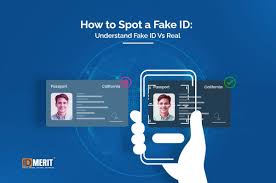 Personalized Illinois Fake ID
Personalized Illinois Fake ID
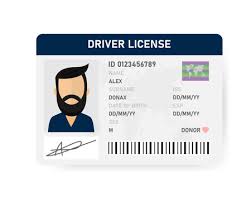 Custom Illinois Fake ID
Custom Illinois Fake ID
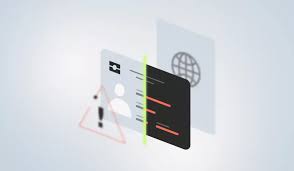 market analysis of fake IDs
market analysis of fake IDs
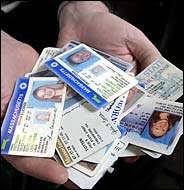 create photo ID
create photo ID
 counterfeit IDs
counterfeit IDs
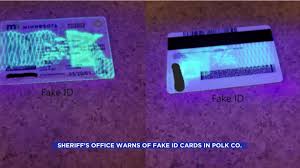 discreet delivery
discreet delivery
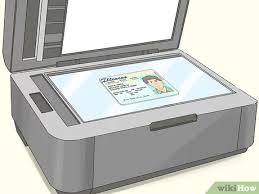 create passport photo
create passport photo
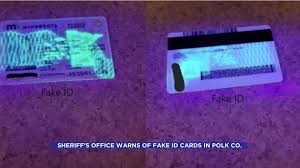 online ID editor
online ID editor
